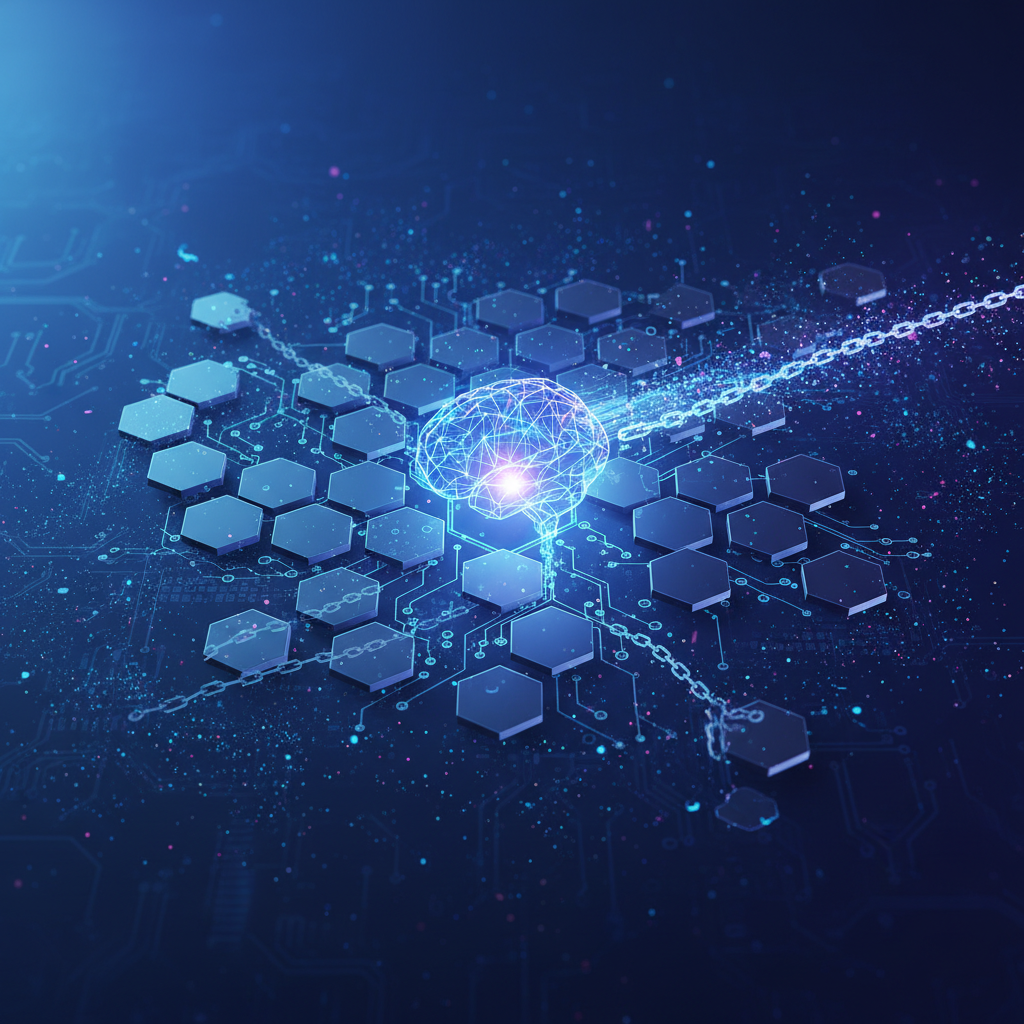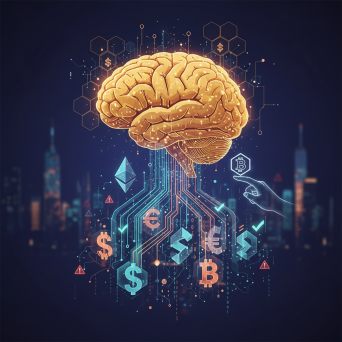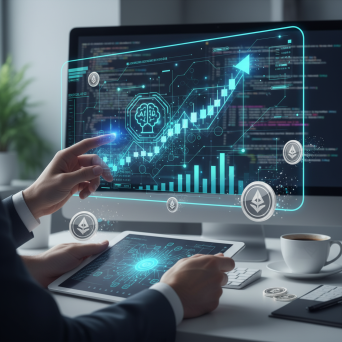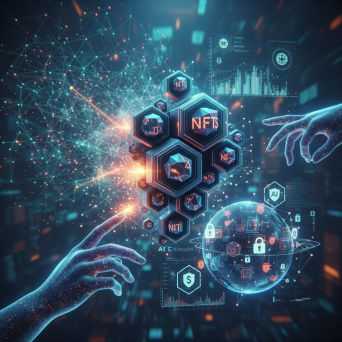Artificial Intelligence: A Revolution in Blockchain Network Optimization

The world of blockchain is undergoing rapid development, but its potential is often limited by issues of efficiency and scalability. However, a powerful ally is appearing on the horizon – artificial intelligence (AI). The integration of AI into blockchain networks promises not just improvements, but a true revolution that will elevate decentralization to a new level and pave the way for the much-desired scalability.
AI as a Driver for Blockchain Optimization
Traditional blockchain networks face a series of challenges: slow transaction speeds, high energy consumption (especially in Proof-of-Work systems), and limited throughput. This is precisely where artificial intelligence comes to the rescue, offering innovative solutions:
- Optimization of the Consensus Process: AI algorithms can analyze network activity patterns and optimize consensus parameters, reducing block confirmation times and increasing energy efficiency. For example, AI can predict which nodes will be most reliable for achieving consensus, reducing the need for unnecessary computational resources.
- Increasing Transaction Speed: By predicting network load and dynamically allocating resources, AI can significantly speed up transaction processing. Imagine a network that automatically scales based on demand, ensuring instant payments – this is already a reality thanks to AI.
- Reducing Energy Consumption: This is particularly relevant for blockchains using Proof-of-Work. AI can optimize mining algorithms, identify the least energy-intensive data processing paths, and utilize available resources more efficiently, making blockchain more environmentally friendly.
- Improving Security: Machine learning algorithms are capable of detecting anomalies and potential attacks at early stages. AI can analyze millions of transactions, identifying suspicious patterns that are impossible for humans to spot, thereby protecting the network from fraud and abuse.
Practical Applications of AI in Blockchain
Specific AI solutions are already being actively implemented to address the aforementioned problems:
- Network Load Prediction: Using historical data and current trends, AI can predict peak network activity. This allows for proactive resource preparation, avoidance of congestion, and ensuring stable operation.
- Dynamic Resource Allocation: AI can automatically allocate computational power and network bandwidth according to current needs. This ensures optimal network efficiency and prevents delays.
- Anomaly and Fraud Detection: AI-based systems can analyze node behavior, transaction structure, and other parameters to detect any deviations from the norm that might indicate an attack or attempted fraud.
"The integration of AI into blockchain is not just a technological upgrade; it's a fundamental shift that makes blockchain more accessible, efficient, and secure for a wide range of users and applications, especially in the context of Web3."
AI for Scalability and the Future of Web3
Scalability is one of the most serious issues facing blockchain technologies. The growing number of users and the complexity of applications require solutions that can handle vast amounts of data and transactions. AI opens up new perspectives for achieving this scalability, particularly:
- Optimizing Sharding Solutions: AI can help more efficiently distribute transactions and data across different “shards” (parts of the blockchain), significantly increasing throughput.
- Improving Layer 2 Protocols: AI can optimize the performance of second-layer scaling solutions (Layer 2), such as the Lightning Network, making them even faster and more reliable.
- Expanding Web3 Capabilities: In the context of Web3, where decentralized applications (dApps), supply chain networks, and digital identities are dominant, AI becomes a key element in ensuring their seamless operation and high performance.
Conclusion
Artificial intelligence and blockchain are a powerful synergistic duo transforming the digital ecosystem. From improving network efficiency and transaction speed to ensuring unprecedented scalability and security, AI unlocks the full potential of blockchain. The continued integration of these technologies promises new innovations in the field of Web3, creating a more reliable, decentralized, and efficient digital future.
Comments
Loading comments...
No comments yet
Sign in to leave the first comment


